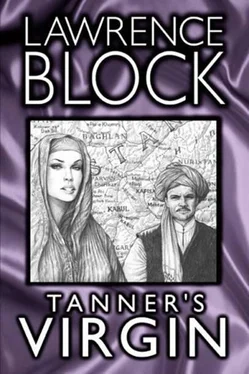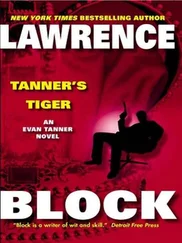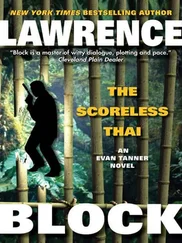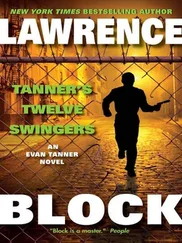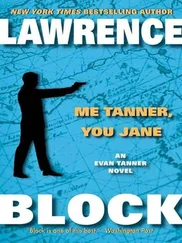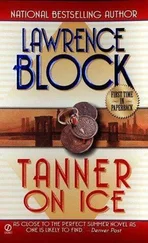“She is not here?” The hag fastened a hand to my arm. “You show me picture again, kâzzih. ” I showed her the picture again. “She is pretty, but other girls pretty too. You pick one out, you buy her.”
I started to tell her to forget it. Then I stopped and thought it over. Amanullah had given me four individual letters to the madams. They would not know that I was only authorized to liberate one girl, Phaedra Harrow by name. I could, if I chose, free a girl at each of the whorehouses. The liberation of four whores is admittedly a far cry from the abolition of slavery, but a journey of a thousand miles begins with a single step, or, as an Afghan proverb of Amanullah’s would put it, ‘No sooner shear a camel than ride a sheep.’
So I looked at the girls again. With my luck, I thought, I would select the one girl who enjoyed being a whore. And what, I wondered, would I do with three liberated prostitutes? The conventional answer, the obvious answer, somehow did not appeal to me. Nor did it entirely answer the question. What would I do with them afterward? If I simply released them in Kabul, they would either starve to death or get shipped back to the cathouses and sold all over again. If I took them to their original homes – well, maybe I could do that, but it sounded like a lot of trouble, and there was no way to be certain that they wanted to return to their original homes. If, as Amanullah had suggested, they were the daughters of slaves, they probably had no original homes in the real sense of the term. And if they had been sold into slavery by their parents, well, home was probably not the wisest place in the world to take them.
What really made up my mind, though, was that I would be sticking Amanullah for a debt he had no reason to pay. True, he was a rich man and could well afford it. True, too, that he had made money in the less than wholesome world of white-slaving and could thus be legitimately shafted by this sort of stratagem. The fact remained that Amanullah was a man of the highest ethical and moral standards, a man with a rich sense of hospitality and friendship. When I must choose between my friends, however corrupt and disreputable they may be, and strangers, however pure and innocent, I choose my friends.
The closest house to that one was the one in Shibarghan, but you couldn’t get there from there. The mountains got in the way, and not even the pragmatic generosity of the Russians had led to the construction of a road from Rustak to Shibarghan. Maybe things would change after the Russians took over the country, I thought. Or maybe they would simply close down the whorehouses and let the miners work things out for themselves. In a free economy, you almost invariably find a whorehouse, wherever you have a large concentration of single men, except for places like Fire Island. But in a planned economy – well, consider the car I was driving, as far as that goes. The Soviets have never shown the proper attitude toward the whole topic of consumer goods. And hookers are consumer goods, even if some of them are pretty raw material.
It was with shining thoughts like this that I diverted myself as I drove all the way back to Kabul.
I stopped there long enough to buy gasoline. I filled the tank of the Balalaika, and I also filled the dozen or so five-gallon cans which filled the back seat and the trunk. When you start a trip in Afghanistan, you make sure that you have enough gas to get you where you’re going and back again. There are no roadside gas stations in the countryside, no clean rest rooms, no free tourist information, no uniformed attendants to wipe your windshield and check your oil. No green stamps, no Tigerino cards, no chance to play Flying Aces or Dino Dollars or Sunny Bucks or any of the great American gas station games. Nor, for that matter, does Afghanistan have much in the way of lung cancer or emphysema or heart disease or air pollution.
I think they’ll catch up, though. Kabul, surrounded by mountains on three sides, is a natural for smog once a sufficient degree of industrialization is reached. The mountains should sock in that rotten air as well as they do in Los Angeles.
From Kabul I took the southern route to Kandahar. The Russians had had nothing to do with this stretch of road, and I felt they were wise. I’d have preferred to have nothing to do with it myself. It was vaguely paved in that someone from the government had once dribbled a load of gravel down the middle of it. The rains had washed away most of the gravel and the rest of it was of little practical benefit, since it was right in the center of the road and the tires of the Balalaika passed on either side of it. The road twisted and dipped and swung this way and that, and periodically I would glance outside my window and see a couple of miles of nothing, pure nothing leading down to a barely visible valley below. The road had no shoulder. It just sat there alongside of the drop, and I held the car as close as I could to the wall on the other side of the road, and I tried to pretend that heights didn’t bother me, and I was very careful not to look over the side of the cliff any more than I had to.
Just before Kandahar I hit table land, a high level plateau across which the road cut straight and true and flat. I stopped the car long enough to pour a can of gasoline into its tank, then put the pedal on the floor and urged the car onward.
Kandahar itself was a rather impressive city, with a population of close to 150,000. It was more uniformly modern than Kabul, more squat concrete block houses and fewer mud huts, more cars and fewer donkeys and camels, more men and even some women in western dress. I stopped for a meal, worked my way through to the southern edge of the city, and pressed on toward where the house was supposed to be.
The house was rather similar to the one in Rustak. There was a single barnlike dwelling instead of a slew of little huts, and the madam was gross rather than gaunt, with a hair-sprouting birthmark in the center of her chin and a group of four deep vertical scars in the center of her forehead. She laughed a lot. She laughed when I told her I had come from Amanullah, and she guffawed when I explained that I was intent upon purchasing a particular prostitute for my own purposes, and she chortled when I showed her the letter of guarantee from Amanullah.
She looked at Phaedra’s picture and chuckled inanely to herself. The scars on her forehead wiggled like snakes. I thought of all those cathouses in novels where, if the madam really likes you, she’ll haul you off to the bedroom herself instead of turning you over to one of the girls. If this madam did anything of the sort, I could see where she might alienate a hell of a lot of customers.
“I know her not,” she said. “You want to look at my girls?”
“All right.”
“They are many of them with men now. I call others.”
She brought in a batch of them, and as the others finished with their clients she brought them in as well, and I guess that the girls were the true similarity between this cathouse and the other one. It certainly wasn’t the physical plant which reminded me of the other, nor was it any shred of resemblance between the wicked witch of the north and the wicked witch of the south. It was the girls, the poor pathetic girls, black and white and yellow and tan, dull-eyed and bow-legged and lead-footed from constant and merciless screwing.
“No,” I said, “I fear she is not here.”
“You care for drink before you go?”
“Coffee, if you have some.”
She did, so I did. It was particularly good, strong and rich, and I drank three cups of it. I stood to go, and the madam asked me if I wanted a girl.
“No,” I said, “I shall wait until I find the girl I seek.”
“Have one now. It is not good for a man to wait too long.”
Читать дальше
